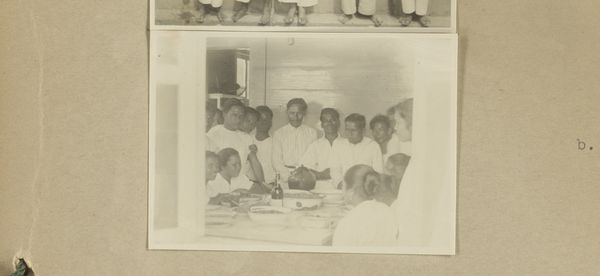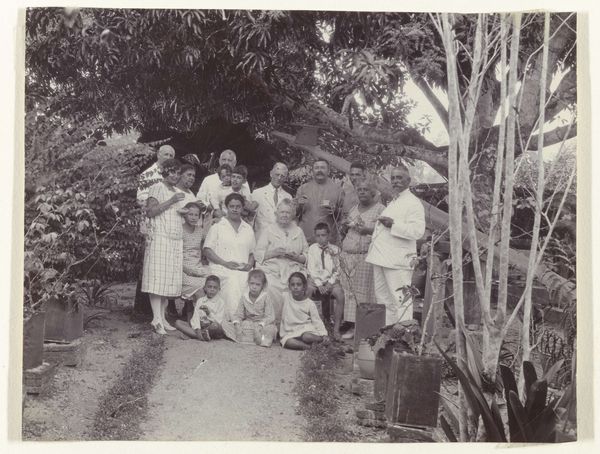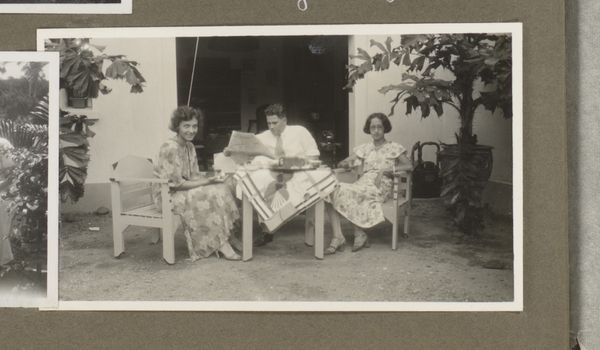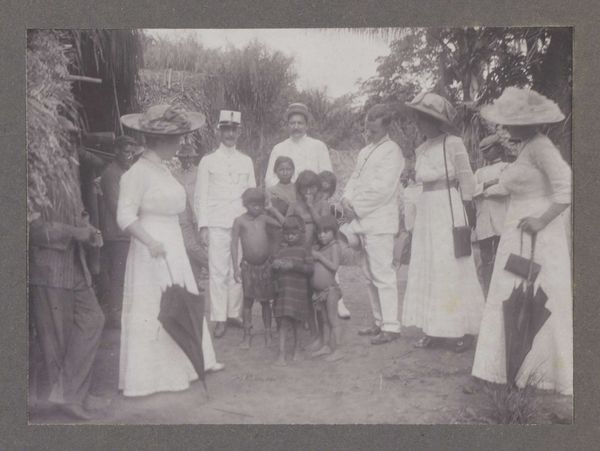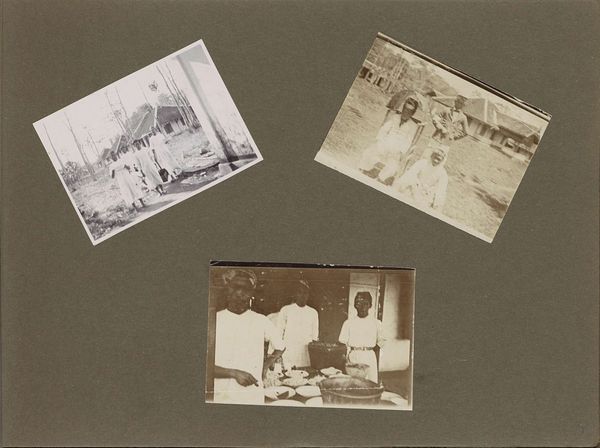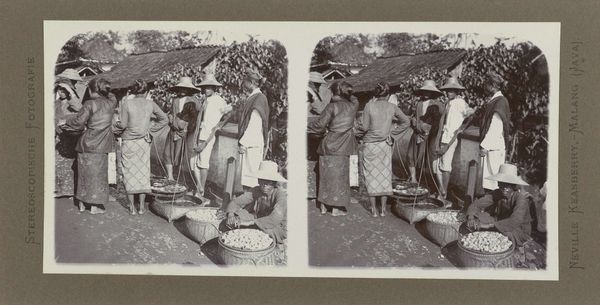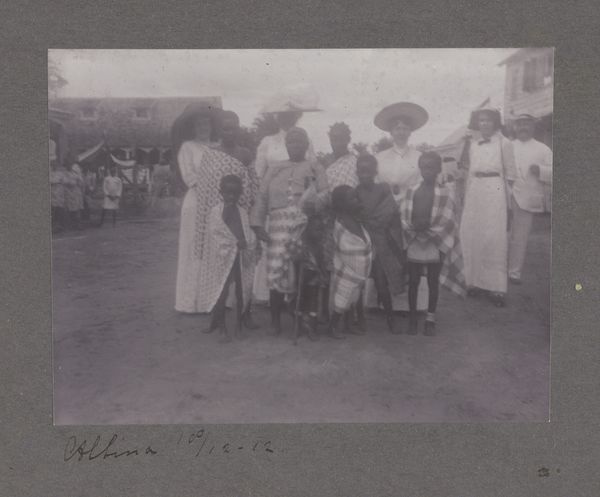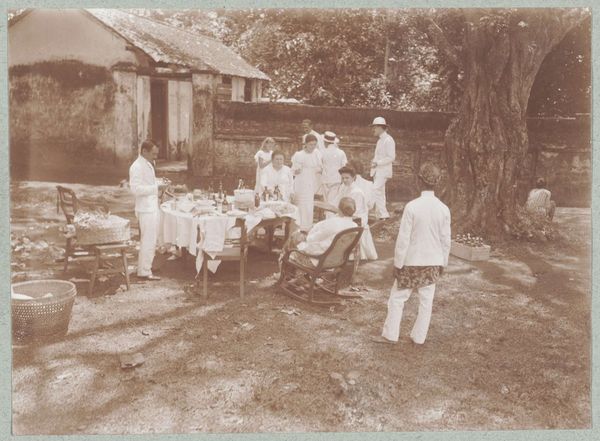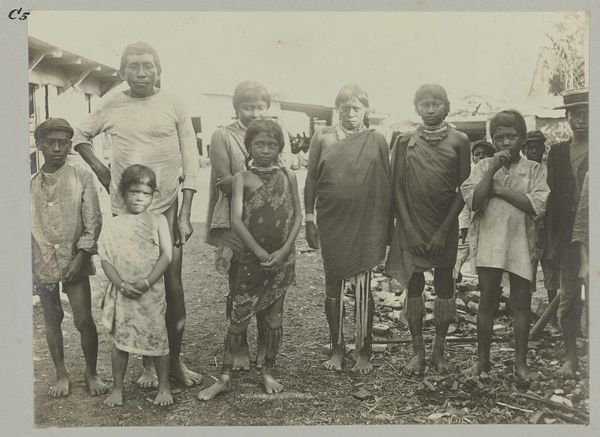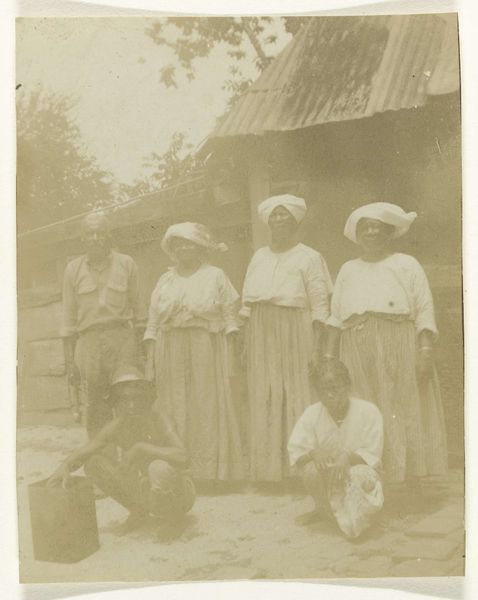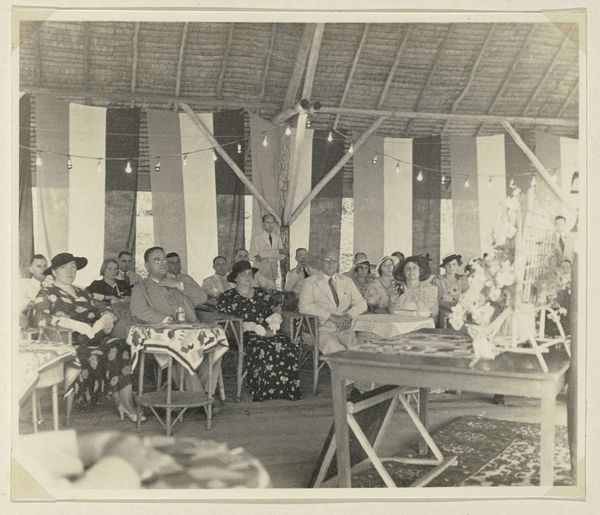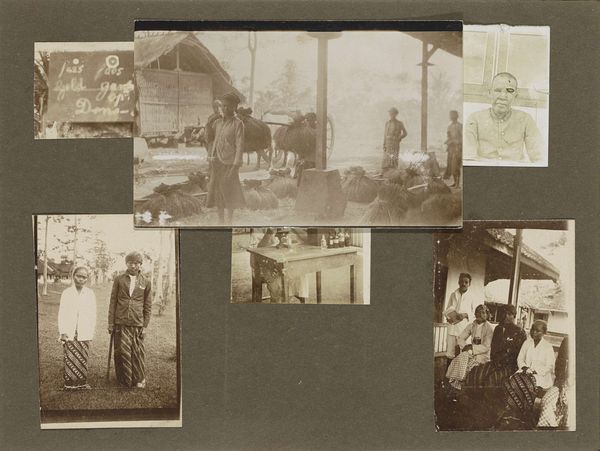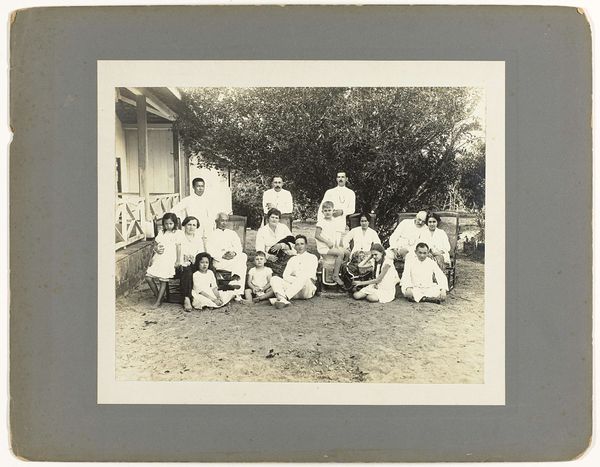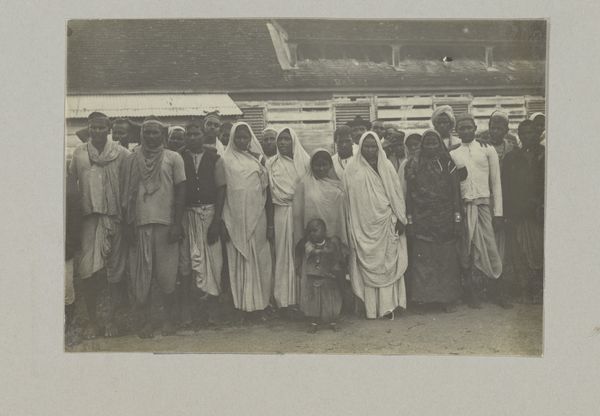
print, photography, gelatin-silver-print
#
portrait
#
print photography
# print
#
photography
#
gelatin-silver-print
#
genre-painting
#
person photography
#
realism
Dimensions: height 11.5 cm, width 16 cm
Copyright: Rijks Museum: Open Domain
Editor: This gelatin-silver print, taken sometime between 1916 and 1930, is called "Doktersbezoek per boot op plantage Accaribo te Suriname," or "Doctor's visit by boat to the Accaribo plantation in Suriname." It's an anonymous photograph currently held in the Rijksmuseum. I find the scene so intimate, even domestic, given what I imagine were the wider colonial contexts. How does the history of Suriname inform your reading of this photograph? Curator: The photograph presents a unique juxtaposition of care and control. We see a doctor, likely of European descent, visiting a plantation in Suriname, a Dutch colony at the time. This journey by boat, presumably to provide medical care, speaks volumes about the unequal power dynamics inherent in colonial relationships. Do you notice anything about who is looking at the camera, and who isn't? Editor: Well, I see two of the people staring directly at us, while the others look away. It's striking! Curator: Exactly. The gazes directed towards the camera challenge the notion of the image as a purely objective document. It indicates a self-awareness, and perhaps even a subtle resistance to the colonial gaze. Considering the history of forced labor and exploitation on plantations, the doctor's visit could represent both a paternalistic concern and a reinforcement of colonial authority. Also note who seems to be preparing food: What could that tell us? Editor: That's such an interesting point – that food preparation is happening on what is ostensibly a doctor's visit! Maybe it is to make them comfortable, or maybe this hints at other needs being met, outside of a strictly medical context. I'm also wondering about the power that the photographer would have wielded... Curator: Indeed. The photograph acts as a visual record, subtly shaping narratives about race, labor, and health in a colonial setting. Think about how it was likely circulated back in Europe, and how that might have affected popular opinions back home. Editor: I see it so differently now. The image is a complex document, hinting at socio-political forces at play during that period, made accessible through something as quotidian as a "house call".
Comments
No comments
Be the first to comment and join the conversation on the ultimate creative platform.
